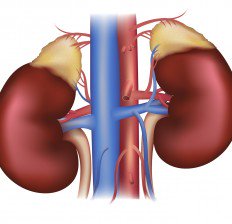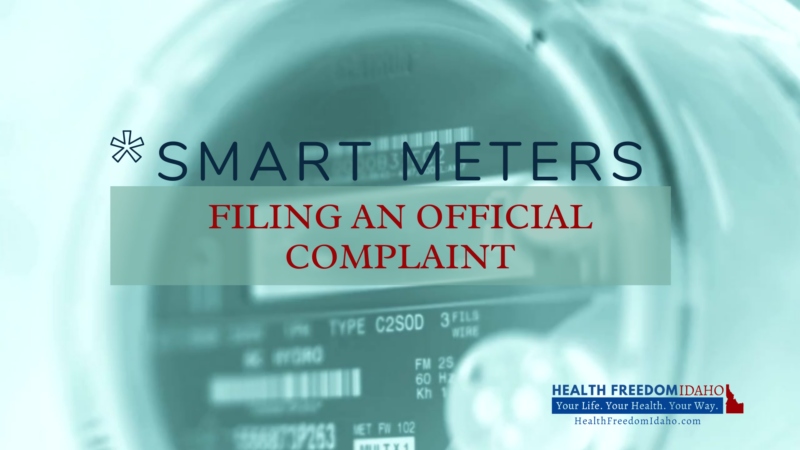The Myth of Adrenal Fatigue?

Adrenal Fatigue is indeed “fatigue”. People that suffer from Adrenal Fatigue tend to feel tired and sleepy throughout the whole day. And this doesn’t go away after a good night’s sleep! Adrenal Fatigue is caused by lower levels of stress hormones, such as cortisol and adrenaline and neurotransmitters. These declines in hormones and neurotransmitters together with the disruption in the daily cortisol cycle, are basically responsible for many of the adrenal fatigue symptoms. Because every person is different, every sufferer from Adrenal Fatigue usually has slightly different symptoms.
Most (if not all) people that suffer from Adrenal Fatigue experience symptoms like fatigue, an inability to handle stress and cravings for certain types of foods.
What Is Adrenal Fatigue?
A relatively new term, “adrenal fatigue” was proposed as a new condition in 1998 by Dr. James L. Wilson, a naturopath and chiropractor. His assumption was that an overstimulation of the adrenal glands (or “adrenals”) by chronic stress over time could lead to an inconsistent level of cortisol (the stress hormone) in the bloodstream, sometimes far more than normal and at other times, far too low. In addition to this overload or improper cortisol level, people with adrenal fatigue often don’t have enough DHEA, the “parent hormone” responsible for the creation of many necessary hormones in the body.
Dr Josh Axe lists these Adrenal Fatigue Symptoms
What happens when the adrenal glands stop producing hormones efficiently? Every bodily function is affected, and as adrenal hormone levels ebb and flow abnormally, even the normal “get-up-and-go” you get from them disappears. Adrenal fatigue symptoms include: (17)
- Autoimmune conditions
- Chronic fatigue (always feeling tired)
- Brain fog
- Hair loss
- Hormone imbalance
- Weakened stress response
- Insulin resistance
- Lightheadedness
- Decreased sex drive/libido
- Moodiness and irritability
- Depression
- Muscle or bone loss
- Skin ailments
- Sleep disturbances
- Weight gain
- Sweet and salty food cravings
As you can see, there are a number of symptoms that might be related to other underlying disorders. Fortunately, the ways to combat these issues are very similar and will benefit your overall health.
What Are Your Adrenal Glands?
 What are your adrenals? Your adrenal glands (adrenals) are two thumb-sized organs that sit above your kidneys and are part of the endocrine system. Also known as the suprarenal glands, they’re involved in producing over 50 hormones that drive almost every bodily function, many of which are essential for life.
What are your adrenals? Your adrenal glands (adrenals) are two thumb-sized organs that sit above your kidneys and are part of the endocrine system. Also known as the suprarenal glands, they’re involved in producing over 50 hormones that drive almost every bodily function, many of which are essential for life.
Hormones affect every function, organ and tissue in the body directly or indirectly. They react to each other as well as respond to conditions in the body in an intricate and highly sensitive balancing act. The adrenal glands work closely with the hypothalamus and the pituitary gland in a system known as the hypothalamus-pituitary-adrenal axis (HPA axis). (7)
Normally, the adrenal glands release cortisol on a diurnal rhythm, referring to the process of boosts of cortisol throughout the day that help wake us up, with a decline in this hormone level in the evening to aid the body in sleeping. This rhythm, however, doesn’t always apply when external stress occurs.
Adrenal glands play a huge role in stress response. Your brain registers a threat, whether emotional, mental or physical. The adrenal medulla releases cortisol and adrenaline hormones to help you react to the threat (the fight-or-flight response), rushing blood to your brain, heart and muscles. The adrenal cortex then releases corticosteroids to dampen processes like digestion, immune system response and other functions not necessary for immediate survival.
Your adrenal glands are also responsible for balancing hormones
Some Doctors Say, “It’s a Myth!”
The medical community believes that the diagnosis doesn’t exist, even when patients are suffering from the symptoms. You need not have a ‘label’ or ‘diagnosis’ to help improve your symptoms. Since the treatment for adrenal fatigue consists mainly of diet and lifestyle adjustments, (which traditional doctors do not see as legitimate medicine) making these improvement will have great benefits and very few side effects!
Adopt a healthy diet and avoid blood sugar spikes
The idea is to remove anything that taxes your adrenals.
Foods to avoid include:
- Caffeine: This can interfere with your sleep cycle and make it hard for your adrenals to recover. If you must drink coffee or a caffeinated beverage, then have a limited amount in the morning before noon.
- Sugar and sweeteners: Includes avoiding high-fructose corn syrup and artificial sweeteners as well. Avoid sugary foods, cereals, candy, sweets, etc. Be aware that sugar is an additive in many breads, condiments and dressings. Try to avoid as much extra sugar as possible. Seek the benefits of raw honey or stevia as an alternative, and always moderate your use of sweeteners of any kind.
- Carbohydrates: While carbohydrates aren’t all bad for you, the inflammation they can cause is particularly problematic when experiencing adrenal fatigue. Many people crave carb-heavy foods when they’re stressed, which offer a momentary satisfaction but end up taxing the adrenal glands more. If you’re overwhelmed and stressed out, try kicking the gluten and starchy carbs for a period of time to see if that may regulate your tiredness and energy levels.
- Processed and microwaved foods: First of all, the microwave has its own dangers, but additionally, most microwaveable, ultra-processed foods have many preservatives and fillers that are hard to digest and wear out your body’s energy and digestion cycle. Try to buy food on the outer walls of your grocery store and prepare your own food whenever possible.
- Processed meats: An overload of protein can stress your hormones more than you might think, and the added hormones and lacking nutrition in conventional, processed meats (particularly red meats like beef and steak) can throw your system out-of-whack in quick succession. When buying meats for adrenal support, stick to grass-fed beef and free-range chicken or turkey, and eat these protein-heavy meats only in moderation.
- Hydrogenated oils: Vegetable oils like soybean, canola and corn oil are highly inflammatory and can lead to adrenal inflammation. Try to only use good fats such as coconut oil, olive oil, organic butter or ghee.
Practice breathing exercises and meditate to reduce your stress levels
5 Minute Mindfulness
The most basic way to do mindful breathing is simply to focus your attention on your breath, the inhale and exhale. You can do this while standing, but ideally you’ll be sitting or even lying in a comfortable position. Your eyes may be open or closed, but you may find it easier to maintain your focus if you close your eyes.
Build in time to get more rest and sleep
The National Sleep Foundation Suggests the following:
- Stick to a sleep schedule of the same bedtime and wake up time, even on the weekends. This helps to regulate your body’s clock and could help you fall asleep and stay asleep for the night.
- Practice a relaxing bedtime ritual. A relaxing, routine activity right before bedtime conducted away from bright lights helps separate your sleep time from activities that can cause excitement, stress or anxiety which can make it more difficult to fall asleep, get sound and deep sleep or remain asleep.
- If you have trouble sleeping, avoid naps, especially in the afternoon. Power napping may help you get through the day, but if you find that you can’t fall asleep at bedtime, eliminating even short catnaps may help.
- Exercise daily. Vigorous exercise is best, but even light exercise is better than no activity. Exercise at any time of day, but not at the expense of your sleep.
- Evaluate your room. Design your sleep environment to establish the conditions you need for sleep. Your bedroom should be cool – between 60 and 67 degrees. Your bedroom should also be free from any noise that can disturb your sleep. Finally, your bedroom should be free from any light.Consider using blackout curtains, eye shades, ear plugs, “white noise” machines, humidifiers, fans and other devices
Additional suggestions include unplugging wireless routers and reducing screen time prior to bed
Herbs and Supplements that are regularly suggested to support adrenal health
Holistic Primary Care shares insight into some of the herbs with detailed information on contradictions for each.
- Ginkgo (Ginkgo biloba) is a common herb well known for its ability to enhance peripheral circulation and for its neuroprotective effects. Often overlooked is the fact that Ginkgo can favorably affect stress levels. In one study, it lowered cortisol levels in healthy patients undergoing glucose tolerance testing (Kudolo GB. Clin Nutr. 2006. 25(4) 606-16). Ginkgo is commonly thought to be blood thinning; however, a recent meta-analysis showed that Ginkgo extract did not increase the risk of bleeding (Kellermann A, et al. Pharmacotherapy. 2011 May;31(5): 490-502). Not all Ginkgo extracts are the same. <read more>
- Ashwagandha (Withania somnifera) root comes from India’s Ayurvedic medicine tradition. It is particularly useful for stress-induced sleeping problems
- Rhodiola (Rhodiola rosea) is another adaptogenic herb with a long history of traditional use. It also has a number of positive human trials in the areas of stress and fatigue management, enhancement of mental performance and treatment of mild depression.
https://adrenalfatiguecoach.com/adrenal-fatigue-symptoms/.
https://draxe.com/3-steps-to-heal-adrenal-fatigue/






